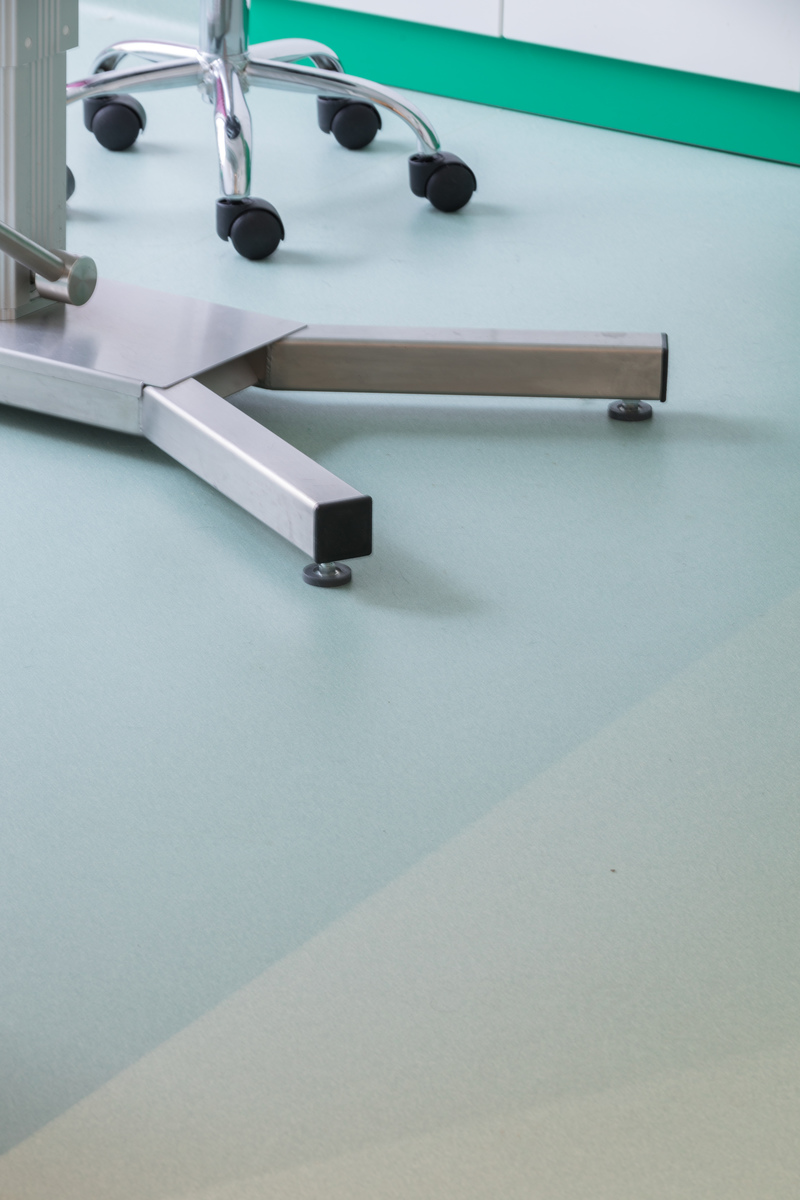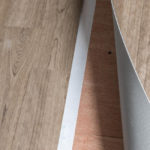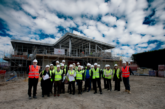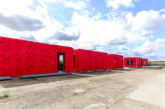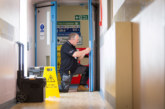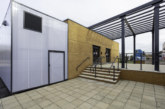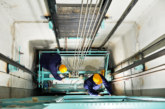With unprecedented demand on health and care services, robust solutions for adapting spaces quickly for high intensity use have become vitally important. Altro’s Technical Services Team is answering a wide range of questions about selecting floor and wall solutions that are up to the task. Roger Moore, EU Technical Services Manager, shares some of the company’s experience and knowledge in this area.
Around the world we’re seeing exhibition centres, hotels, churches, schools, ice rinks and more being transformed into temporary hospital and care facilities. Each project is different, but they are common in requiring quick to install, smart solutions that are durable and hygienic and won’t leave lasting damage once the space returns to its original use.
Adhesive-free solutions
Adhesive-free products come into their own in these projects, and are tried and tested in the healthcare sector. Developed specifically for commercial applications, adhesive-free vinyl floors are designed to be loose laid over a wide range of new and existing floor surfaces, including painted floors, existing sheet resilient flooring, vinyl tiles and even damp subfloors. Adhesive-free floors combine well with hygienic PVCU wall sheet, which in these emergency temporary facilities can also be installed using adhesive-free techniques for speed and ease.
Installation technique
The concept is simple – the material is specifically designed to be installed without the use of wet adhesives. Altro’s adhesive-free floors use double-sided tape that is supplied with the material as part of the system. The tape is used around the perimeter of the installed area as well as under the joints to be welded.
The rest of the installation technique is much the same as traditional adhered floors so is familiar to any flooring installer – a really important consideration given that teams working on these projects may well be mixed with military and trade personnel, of varying experience.
The benefits to this lack of adhesive are many, but one particular key advantage is time saving. Installation time is typically halved, there are no glues to cure before welding or getting back onto the floor and this means a job that may have taken two days, now takes only one and can be walked on straight away.
Substrate preparation
Another huge advantage of adhesive-free flooring is that in many cases no special preparation is needed, even in the case of damp subfloors. However, if there are holes in the floor these would need to be filled, and in some cases where the existing surfaces is very uneven a temporary floor may be required. Our technical team are happy to provide help and guidance.
We’ve recently been asked about installing resilient floors over carpet in hotels that are being temporarily repurposed and need more hygienic and robust solutions. Adhesive-free flooring will work for this, and can be installed as above. If the carpet is particularly thick, installing over plywood is best. Either way, this can be uplifted after without leaving lasting damage, though care must be taken when welding joints – it works well to slide a sheet of ply, or similarly robust material underneath just while the joint is welded.
Hygienic walls
Hygienic PVCU wall sheet can be an ideal partner to adhesive-free flooring in these adapted spaces. Although we would ordinarily recommend it is always fully bonded to the substrate, it can be installed using foam tape or hook and loop tape for speed and ease when applied to a partition wall in these temporary but demanding areas. PVCU wall sheet can deliver much needed hygiene and cleanability in these temporary facilities and be sealed at the base of the sheet with Altro silicone to resilient flooring to provide an integrated, impervious solution. We recommend using a simpler two-part joint strip, which makes the process quicker, easier and possible without specialist installation tools.
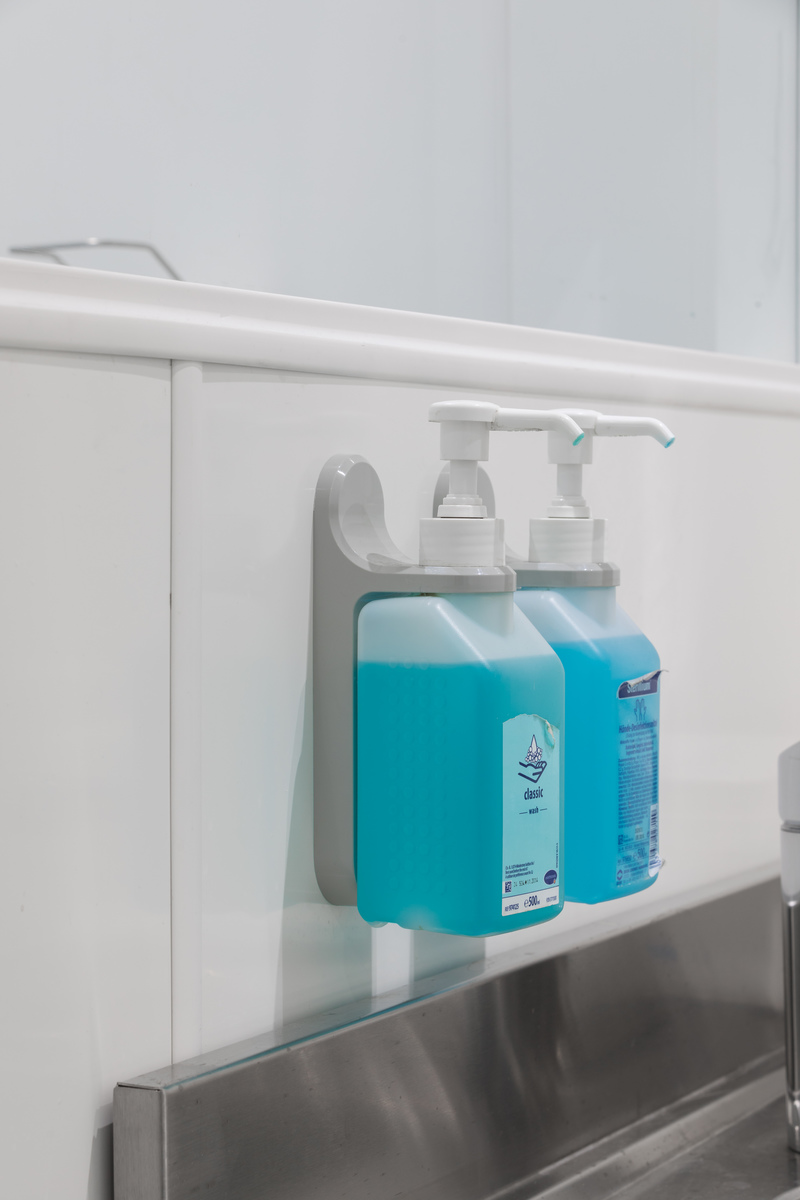
Modular building
Adhesive-free options are also well suited to modular buildings, which are being employed to good effect to provide toilets, wash areas, sluice rooms and more. Speed and ease of installation are important, as is the ability to reuse or repurpose as needs change.
Uplift and recycling
It’s not yet clear how long these temporary facilities will be in use for, or how they may need to be changed over time. Adhesive-free products are flexible – they are uplifted once the original area use needs to be re-established, with no damage done – something we’ve seen in practice many times. The product can either be re-used elsewhere or fully recycled.
Ongoing expert support
The construction of temporary hospitals and care facilities across the country is well underway. Our floors and hygienic wall solutions are being installed in many of these much-needed NHS facilities. We want to play our part in helping the country get through this difficult time and use our experience working in partnership with the healthcare sector to provide remote technical support, whatever the challenge. Please get in touch if you have any questions.
